The government has confirmed that the first phase of the Renters’ Rights Act will come into force by May 2026. This includes the long-anticipated removal of Section 21 ‘no fault’ evictions, alongside a host of new compliance measures and legal changes. For those with prime properties in London and Surrey, this isn’t just legislative housekeeping. It changes how you plan, manage, and protect your rental investments.
Here’s a clear breakdown of what’s changing, and what’s on the horizon.
Key Changes Taking Effect In 2026
Section 21 is being abolished
By May 2026, landlords will no longer be able to evict tenants without providing a reason. This means all future evictions will need to go through Section 8, which requires specific legal grounds such as property sale, arrears, or anti-social behaviour. The government has stated this reform will come in only once the court system has been improved to cope with expected demand.
Evictions will require stronger evidence
If you’re looking to sell or move into your property, you must now provide supporting documents. For example, marketing instructions or solicitor letters for a sale, or proof of intended occupation. There are also minimum tenancy periods before these grounds can be used.
Increased penalties for non-compliance
When the first phase of the Renters’ Rights Act comes into force in May 2026, landlords will face significantly tougher penalties for breaches. These include fines of up to £40,000 and rent repayment orders of up to 24 months’ rent for serious non-compliance.
Pets, rent increases, and fixed terms
Landlords can no longer enforce blanket bans on pets. All tenancies will become periodic, removing fixed terms. Rent increases are limited to once per year and must follow a formal notice procedure. Tenants can challenge increases deemed above market value.
What’s Coming Next?
While the key reforms are set for 2026, other elements will follow, including:
- Mandatory registration on the new landlord portal
- Enforcement of the Decent Homes Standard
- Full rollout of the Ombudsman scheme
Each of these will carry enforcement powers and financial penalties, so preparation is essential.
How Prime Landlords Should Respond
For landlords of prime homes, the implications go beyond just paperwork. Your reputation, rental yield and tenant relationships are on the line. Here are four ways to stay ahead:
Review and update your tenancy agreements
Ensure your contracts reflect the move to rolling tenancies and are Section 8 ready. Remove clauses that are no longer enforceable, such as fixed end dates or blanket no-pet rules.
Get documentation in order
With courts requiring firm evidence for repossession, ensure your paper trail is strong. Keep inspection reports, rent statements and correspondence well-organised.
Reassess rent reviews
One increase per year is allowed, but it must be fair and justifiable. A professional rent review can help set the right level and avoid disputes.
Consider a managed service
With rising compliance risks, working with a knowledgeable letting partner can help ensure all legal requirements are met while maintaining a premium service for your tenants.
How Chesterfield Gordon Can Help
Navigating these reforms alone can feel overwhelming. At Chesterfield Gordon, we work directly with landlords of prime homes to provide:
- Full tenancy compliance, updated documentation, and rent reviews
- Ongoing advice on managing periodic tenancies under the new rules
- Inspections, evidence preparation, and repossession support
- Access to a trusted network of legal and property professionals
Whether you own one property or several, our founder-led service ensures you always deal with experienced decision-makers who understand what’s at stake. We help protect your income, your asset and your reputation.
For clear advice and professional insight, explore our landlord services.









